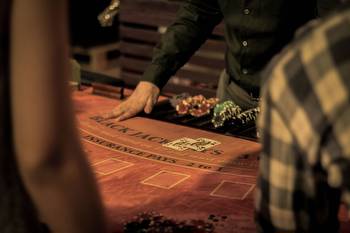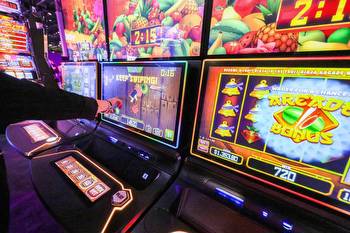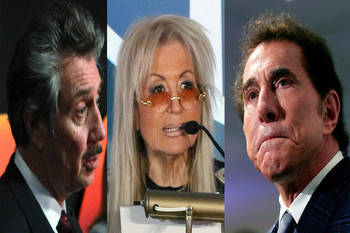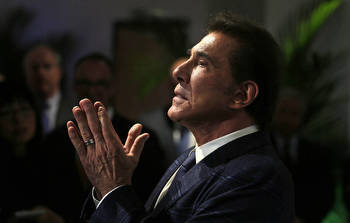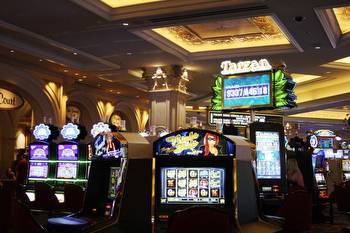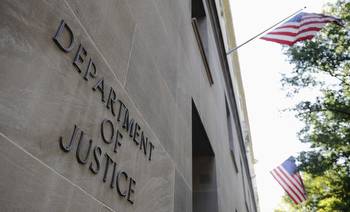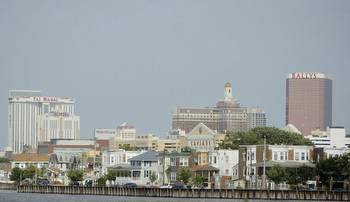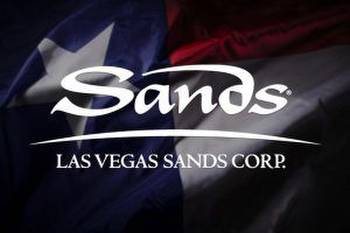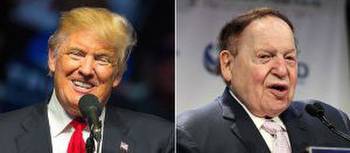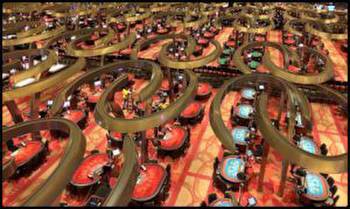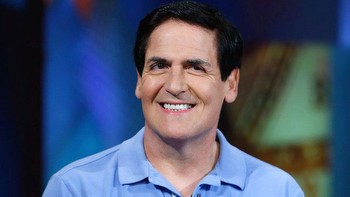The Lobbyists' Secret War behind Gambling Legalization in the United States
The U.S. Department of Justice announced in January 2019 that all forms of interstate online gambling are illegal, reversing a longstanding DOJ opinion. Since then, proponents of legal online casinos and poker sites have accused Las Vegas Sands CEO Sheldon Adelson of calling in political favors with the Trump administration to change federal laws. Since Adelson is the largest single donor to the Republican Party, the adoption of his pet cause by the Justice Department struck many iGaming advocates as suspicious.
Soon after the new online gambling policy was announced, observers noted that the 2019 opinion by the DOJ’s Office of Legal Counsel contained suspicious language. The DOJ opinion, titled, “Reconsidering Whether the Wire Act Applies to Non-Sports Gambling,” used the same language as anti-online gambling brochures used by one of Adelson’s lobbying groups. That led many to believe there was coordination between the U.S. Justice Department and Sheldon Adelson’s lobbyists.
Ray Lesniak’s Freedom of Information Requests
Recently, a former New Jersey state senator released documents that shed light on the dispute. In September 2019, Ray Lesniak, a longtime advocate of online gambling, received 76 pages from a freedom of information request filed to learn about the secret lobbying of the Trump administration by Sheldon Adelson’s associates.
Lesniak released the documents to the U.S. media, which showed Adelson allies used considerable pressure to influence the January 2019 DOJ opinion. They also proved the pressure was bipartisan in nature.
U.S. Lawmakers Urged Jeff Sessions to Change DOJ’s Opinion
Readers of gaming news long knew that Sen. Lindsey Graham (R-SC) and Sen. Dianne Feinstein (D-CA) supported a change in the DOJ’s online gambling opinion. The two sent a letter to then-U.S. Attorney General Jeff Sessions in May 2017 asking for Sessions to change the policy.
What the gaming community did not know was that three Democrats – Dan Lipinski of Illinois, Emanuel Cleaver of Missouri, and Henry Cuellar of Texas – called on Sessions to do the same. The three Democratic representatives sent a letter to the AG which said, “Internet gambling is not a partisan issue. It’s one we believe should be more closely examined by policymakers in Congress before being allowed to expand any further.”
Lesniak’s document release also showed that former State Attorney General Jon Bruning (R-NE), who serves as the lawyer from Adelson’s Coalition to Stop Internet Gambling (CSIG), also sent a letter to Jeff Sessions calling for a reversal.
Stating he served as Nebraska’s AG for 12 years, Bruning stated, “During that time I observed firsthand the threats to our children and most vulnerable citizens lurking on the Internet and was a strong advocate for protecting my citizens from illegal activity prevalent online. This is why I was extremely troubled when President Obama’s Department of Justice reversed a longstanding interpretation of The Wire Act to permit online gambling.”
Bruning’s letter raised an issue that is dear to Adelson: the threat posed by underage gambling on the Internet.
Recent History of U.S. Legal Online Gambling
For the past 7 years, Sheldon Adelson has advocated a comprehensive ban on U.S. online gambling. When Nevada, Delaware, and New Jersey approved online gambling in 2013, casino mogul Sheldon Adelson vowed he would spend “whatever it takes” to see online casinos and poker sites banned in the United States.
Over the years, the CEO of Las Vegas Sands Corp fought legalized online betting at the state and federal level. Because the U.S. Department of Justice during the Obama era supported legalization, Adelson relied on federal lawmakers instead of administration officials.
Those efforts failed, despite support from power brokers like Sen. Lindsey Graham (R-SC), Sen. Marco Rubio (R-FL), and former Rep. Jason Chaffetz (R-UT). In 2014, Adelson’s political allies introduced Restore America’s Wire Act (RAWA) in the U.S. House and U.S. Senate, but the bill never got out of committee.
New Jersey Online Gambling Revenues
In the intervening years, New Jersey built a $300 million online gambling industry. Atlantic City casinos, which had struggled during the recession years, found new sources of revenue. Delaware and Nevada, hoping to copy New Jersey’s success, signed the Multi-State Internet Gaming Agreement (MSIGA) to share online poker liquidity. Meanwhile in neighboring New York talks for legalization have frozen as they see their citizens travel to New Jersey for a fun time and take their taxing money with them.
To counter such efforts, Sheldon Adelson funded the Coalition to Stop Internet Gambling (CSIG) to stop the spread of online gambling at the state level. The billionaire’s war on online gambling kept most U.S. states from adopting such laws from 2013 to 2017, but it failed to stop Pennsylvania from legalizing online cardrooms and casino sites in October 2017. Pennsylvania’s budget problems required novel remedies; online gambling would provide at least $200 million a year. For an up to date report on online gambling regulations across the United States refer to this map.
By 2017, though, Adelson had a different avenue to an online gambling ban. Sheldon Adelson was President Donald Trump’s biggest donor in the run-up to the presidential election, as well as a member of Trump’s inauguration committee. The relationship gave Adelson a direct line to the White House, which culminated in the 2019 reversal of the DOJ opinion on online gambling.
Sheldon Adelson Points to Underage Gambling
As said before, the opinion mirrored many points Adelson has made over the years. At the 2014 Global Gaming Expo, Sheldon Adelson gave a keynote address where he discussed the threat of online gambling to American youths.
During the talk, Adelson noted the ease with which his grandchildren navigated the Internet and expressed his unease at their ability to play online casino games for real money. The casino billionaire cited the threat to underage children as his reason for opposing online gambling so staunchly.
Critics suggested the octogenarian’s perspective on the millennial generation’s technology habits might be skewed. Eighty-something casino executives do not play games online and are n0t typically the most tech-savvy. Adelson marveled at his grandchildren’s’ ability to manipulate smartphones and tablet computers, seemingly confusing the ability of children to work tech devices and download apps with the skills of a computer hacker.
Why Sheldon Adelson Wants to Ban Online Gambling
In the keynote address, Adelson suggested that many tech savvy young adults can hack an online casino’s age verification software. At the same time, he assumed those same children were naive enough to gamble online without knowing they were gambling.
Members of the gambling media questioned Adelson’s motives. Many noted he has generated more wealth from gambling than any other person in history and therefore lacks credibility when discussing concerns over problems gambling. The pundits suggested the chairman of Las Vegas Sands conveniently eliminates competition if the U.S. government adopts his suggested changes.
The LVS executive is a billionaire many times, in part due to gambling. In his defense, Adelson would argue that his land-based casinos screen out underage gamblers. Adelson’s critics point out that the Pennsylvania Gaming Control Board fined Sands Bethlehem several times for allowing underage gamblers in their doors.
Are Children Vulnerable to Online Problem Gambling?
Sheldon Adelson is not making up the threat posed by gambling to underage players. Consistent gaming research supports his claim. The UK Gambling Commission conducted research on student gamblers in 2018 and showed a marked increase in problem gambling.
A 2014 study by the University of Adelaide School of Psychology researcher Daniel L. King titled “Adolescent Simulated Gambling via Digital and Social Media” showed the social media gaming on simulated free-play casinos make children more likely to develop gambling habits when they reach maturity.
Yale Gambling CORE Research
Meanwhile, Dr. Marc Potenza of Yale’s Gambling Center of Research Excellence (CORE) released a 2008 study on the effects of adolescent gambling. For nearly 20 years, Dr. Potenza and the CORE team has conducted research on the human brain’s role in the development of pathological gambling. Using a variety of testing methods, CORE had studied recreational gamblers, non-gambling players, problem gamblers, and pathological gamblers.
Potenza’s team of researchers, which includes experts on alcohol and drug addiction, has shown there is a psychological component to compulsive gambling. In that way, pathological gambling is much like alcohol, drug, or shopping addiction.
Are Online Gambling Bans Effective?
Advocates of legal online gambling counter that such arguments miss the point. Because of the proliferation of online gambling, strict bans leave the young much more vulnerable than regulated gaming would.
If a state legalizes and regulates online gambling, lawmakers require consumer protections. They also require responsible gaming measures that protect gamblers. Gaming hotlines, self-exclusion lists, and links to counseling services are prominent on licensed online casinos. When problem gamblers use unregulated online casinos, they have no such resources.
Sheldon Adelson’s Lobbying Effort on a Federal Online Gambling Ban
Ray Lesniak’s disclosures add another layer of complexity to the ongoing debate over Adelson’s proposed online gambling ban. They show that other interests want to ban interactive gaming, though the citation of CSIG talking points in the 2019 DOJ opinion show that Adelson allies led the lobbying effort of the U.S. Department of Justice under Donald Trump.









